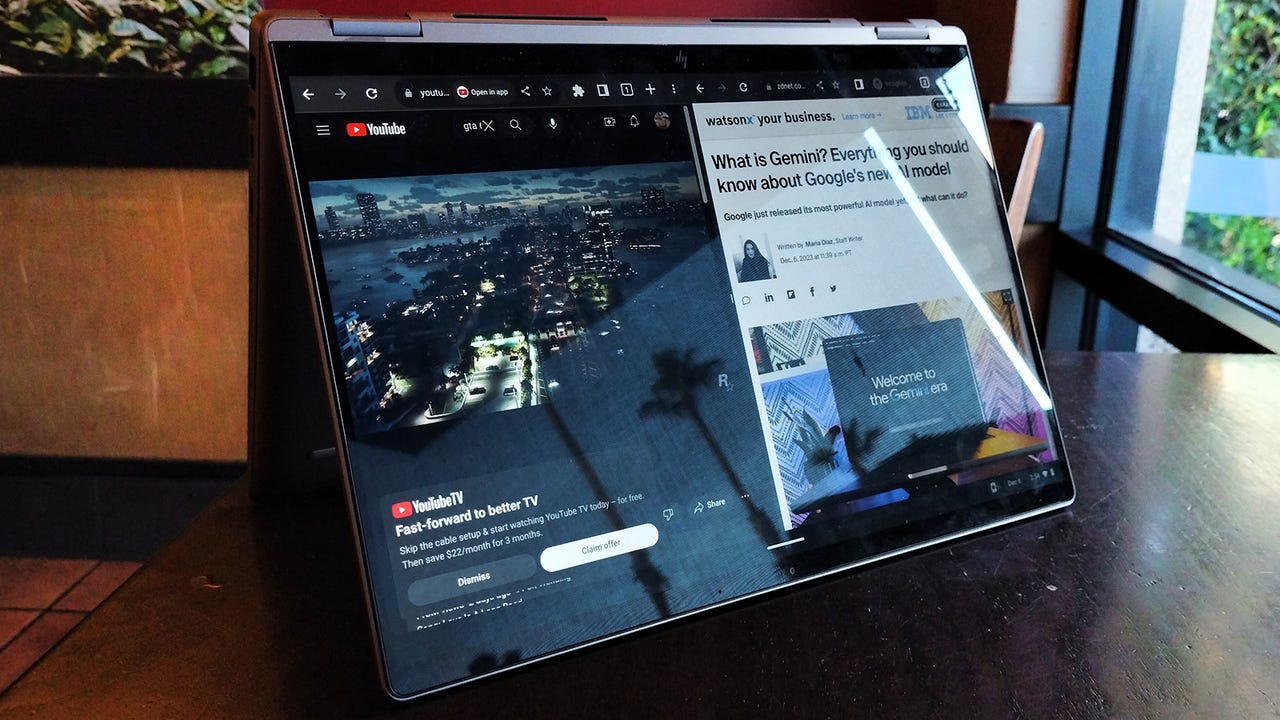
































When ChromeOS first launched, it was considered nothing more than an operating system built around a web browser. Indeed, during those first iterations, you couldn't do much more than use the OS' web browser.
These days, ChromeOS is much better. You can install Linux and Android apps, multitask, add printers, connect to remote shares, and much more. When you compare ChromeOS to MacOS, however, you can see where the former falls short.
Also: The best Chromebooks you can buy
I've come up with five ways Google's OS could evolve to rival Apple's OS. Curious? Read on.
It's fairly common knowledge that, of all the operating systems on the market, MacOS is hands-down the champion at handling multimedia. There's hardly a file type MacOS cannot open -- and when it does, it plays that media to perfection.
Also: 5 reasons why Chromebooks are the perfect laptop for most people
ChromeOS? Not so much. In fact, ChromeOS struggles to play any media that cannot be opened in a browser. For ChromeOS to be taken seriously, this needs to change. The operating system requires built-in, dedicated apps that aren't trapped within the browser and that open video and audio files. ChromeOS also needs to be able to open files remotely and locally.
It can be frustrating when you download a multimedia file on a Chromebook just to find out that it can only be opened within the web browser. This may be fine for some files, but Chrome isn't always the greatest at handling higher-resolution video and audio. Better multimedia support should be a must.
I'm not a big fan of Chrome -- it doesn't even rank in my top five web browsers: Arc, Opera, Firefox, Safari, and Brave (in that order). If you're savvy enough, you can enable Linux support on ChromeOS and install Firefox, but that doesn't always work as expected. You could also go the Android app route, but, again, you'll find those browsers don't perform well.
I would love to see ChromeOS able to install any of the Chromium-based web browsers as native apps. That capability would mean you could install Microsoft Edge, Vivaldi, Opera, Brave, Arc, Ungoogled Chromium, and more. You then wouldn't have to be so concerned about the never-ending list of zero-day vulnerabilities found in Chrome.
Let's face it, a comparison between Apple hardware and Chromebooks isn't fair. Apple laptops are years ahead of Chromebooks on about every conceivable level. There are only a few Chromebooks that inch near the quality of MacBooks, such as the HP Dragonfly.
Also: I tested Google's new Chromebook Plus and the generative AI features blew me away
Every other Chromebook, however, pales in comparison. At one point, Google had the Pixel Chromebook, which was stellar, but it didn't last long. Unfortunately, Google decided to stop making its in-house Chromebook.
Buying a Chromebook today is a hit-or-miss proposition. You might get a decent display, but a less-than-adequate keyboard. You might get a good trackpad, but tinny sound. The last Chromebook I had that was solid across the board was the 2015 Pixel Chromebook -- that device was like the Ferrari of Chromebooks at the time.
You can connect your Chromebook to a printer if you know what you're doing, but it's not always easy. You might have to know your printer's IP address or share it from another machine. Even when you do get your printer connected, it might not always work as expected. I've had printers randomly vanish from Chromebooks or just stop working (even though they work on other machines on the network). Google needs to fix this issue.
I realize that printers are often a pain. I worked as a remote support engineer and often dealt with printers because that was the most common problem. Still, Chromebooks need better printer discovery and connection tools.
The one thing that never fails to shock me is the poor integration between Android and ChromeOS. This connection should be a no-brainer for Google. For whatever reason, these two operating systems don't always play well together.
When your Android phone gets near your Chromebook, magic should happen. Contacts should sync, notifications should be available on both devices, and certain directories should automatically mount and be accessible from either OS. Google could take this integration one step further and make it possible to plug your Android phone into your Chromebook as a single, powerful OS. Unfortunately, Google seems content with the limited integration between the two.
Also: I revived three ancient computers with ChromeOS Flex, and you can too
For Chromebooks to catch up with MacBooks, Google must focus on the total approach rather than individual features.
I realize most of these things that I suggest won't happen soon, but it would be great if Google considered them. Should the tech giant integrate a couple of these features, ChromeOS would be exponentially better than it already is.
Don't get me wrong, I like ChromeOS. It's simple, fast, and efficient. I've tried to get my wife a MacBook, but she makes it clear she prefers ChromeOS. So, bravo to Google for creating such an effective platform. That success doesn't mean, however, that the tech company can't keep improving the OS.
 Tags chauds:
technologie
Tags chauds:
technologie